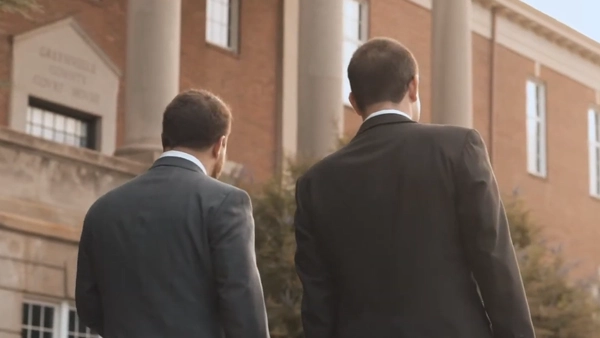When you are charged with a criminal offense in the State of South Carolina, there are a number of general strategies you and your attorney can take to address them. Many criminal defendants will invoke the protection against self-incrimination and require the prosecution to prove their guilt by proof beyond a reasonable doubt. This strategy does have its advantages:
- It does not require the defendant to testify at trial and thereby protects the defendant against cross-examination (which can be damaging to a defendant’s character);
- It allows the defense to remain focused on attacking the credibility and persuasiveness of the prosecution’s evidence – the defense does not have to divide its attention between attacking the prosecution’s “story” while advancing their own; and
- It is more cost-effective in that the defendant generally does not need to spend a large amount of money in finding evidence and witnesses to challenge the sufficiency of the prosecution’s evidence.
In some cases, however, it is necessary and/or advisable for the defense to advance its own theory or “story” through evidence and witnesses. This can be accomplished through raising one or more affirmative defenses.
What is an Affirmative Defense and How Do They Work?
An affirmative defense is, simply put, a theory of defense that the defense team advances as an “excuse” to the prosecution’s theory of the case. It is “affirmative” in the sense that in order to be able to have a jury consider such a defense the defendant is responsible for assuring that there is sufficient evidence presented at trial that would enable a judge or jury to fully consider the defense. If there is insufficient evidence to suggest that an affirmative defense to the criminal charge(s) exist, then the judge or jury may not be able to consider the affirmative defense.
An affirmative defense is not a denial that the criminal conduct occurred: quite the opposite. When a defendant uses an affirmative defense, the defendant is essentially conceding that the criminal conduct complained about by the prosecution did in fact occur, but there is some legal justification for the conduct or legal reason why the defendant may not be found criminally responsible.
An Example to Illustrate the Difference
Suppose that Defendant Dave is charged with murdering his next door neighbor. The prosecution’s theory of the case is that Neighbor Ned was mowing his yard one day when Dave approached Ned and began arguing with Ned over some event that happened last week. The argument ended without resolution: Dave retreated to his home and Ned resumed mowing his yard. A few minutes later, Dave returned outdoors and shot Ned in the back. In order to establish its case of murder, the prosecution would need to prove (1) Dave killed Ned; and (2) the killing was done intentionally and/or with malice or premeditation. Each of these elements would need to be proven by proof beyond a reasonable doubt.
A traditional “defense” would focus on undermining the persuasiveness of the prosecution’s evidence as to each of these elements. For example, the defense may argue that there are no witnesses to the alleged murder and so there is little or no proof – certainly not proof beyond a reasonable doubt – that Dave is the one who shot Ned. Or the defense may argue that if David did indeed shoot Ned it was not intentional. Dave only intended to scare Ned by discharging the firearm.
With an affirmative defense, however, Dave admits that he was the one who shot Ned but claims there is some legal justification for doing so. If the affirmative defense is self-defense, for example, Dave will need to provide evidence that Ned placed him in fear for his life and Dave reasonably believed that Ned would either kill him or inflict great bodily harm upon him if Dave did not shoot Ned.
Common Affirmative Defenses
There are several affirmative defenses that appear more often than others in criminal cases. These include:
- Self-defense/defense of others: The killing of another or causing injury to another is legally justifiable if the victim was the initial aggressor and the defendant reasonably believed that force was necessary in order to protect his or her own life or the life of another. However, the defendant may not use an excessive amount of force (he or she cannot generally use a gun in a fist fight) nor can force be used if the victim is retreating from the fray.
- Defense of dwelling: South Carolina recognizes the common law doctrine of the “castle doctrine,” which states that your home is your “castle” and you are entitled to protect it. A person who unlawfully enters your home or other designated facility is presumed to present a threat to your life and the use of deadly force to defend yourself is often justified. However, the castle doctrine is not available where the victim who is found on the defendant’s property had a legal right to be there. For instance, a parent who goes to the home of her child’s other parent in order to retrieve the child pursuant to a court-ordered visitation plan has a legal right to be present on the other parent’s property. The other parent may not invoke the “castle doctrine” to kill or harm the parent.
- Mental disease or defect (capacity): A person who lacks the mental capacity to understand the nature of the crime with which he or she is charged, the punishment that he or she faces, or the reason it is being imposed, may be found to have committed the act but may escape punishment for the act (instead being committed to a facility for care and treatment).
- Insanity: A person who is insane is suffering from a condition or defective thought process does not understand that the act he or she committed is legally or morally wrong. This is not simply a “the devil made me do it” defense: Rather, the defendant thought (for example) that the victim was in fact an evil demon that the defendant needed to slay in order to save humanity.
Investigating, preparing, and presenting an affirmative defense require a great deal of legal knowledge and skill. Most lay persons do not have the knowledge or resources to accomplish these tasks successfully. For this reason, contact the experienced South Carolina criminal defense team of David R. Price, Jr., P.A. for assistance. We will investigate your case so that you are aware of all of your potential defenses. We will then work with you to select and pursue a defense strategy designed to obtain an acquittal, reduction in the severity of charges, or mitigation of sentence. Contact us today by phone or through our firm’s website.







